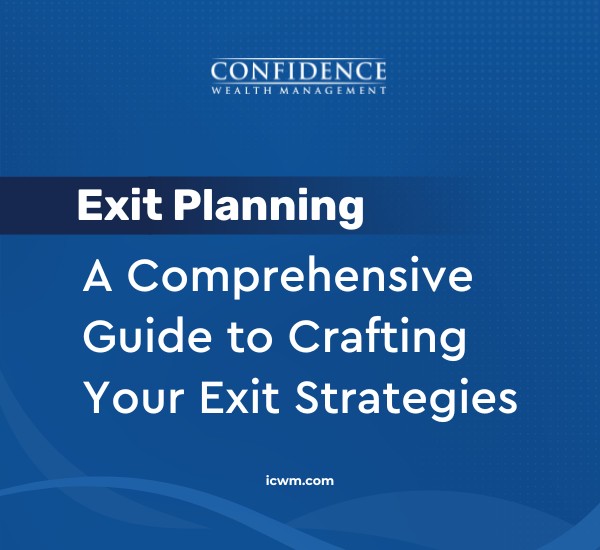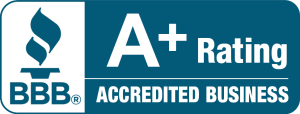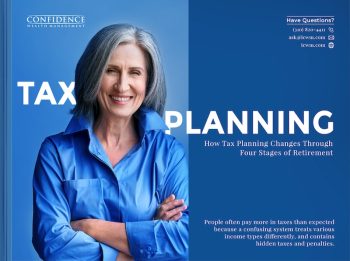If you’ve worked hard to build your wealth, you’ll soon run into a major problem: protecting it from future potential creditors.
We see clients more often than we’d like who neglected this problem and are hit out of nowhere with an accident, heavy healthcare costs, or missed bills.
These events can be devastating if you aren’t prepared.
But we also see clients who want to get ahead of it, and that’s the right attitude to have.
Whether you’re concerned for your personal assets or your business, various tools exist to keep your property safe.
Keep in mind that no protection tool is guaranteed to work, and you may have to adjust your asset protection strategies as your situation or the laws change.
Now, let’s get into how to protect your assets in estate planning.
Liability Insurance: Your First and Best Line of Defense
Consider purchasing or increasing umbrella coverage on your homeowner’s policy. For business-related liability, purchase or increase your liability coverage under your business insurance policy.
Generally, the cost of the premiums for this type of coverage is minimal compared to what you might be required to pay under a court judgment should you ever be sued.
Use a Declaration of Homestead to Protect the Family Residence
If your primary residence is your most significant asset, state law determines the creditor and judgment protection afforded a residence by way of a Declaration of Homestead, which varies greatly from state to state.
For example, a state may provide a complete exemption for a residence (i.e., its entire value), a limited exemption (e.g., up to $100,000), or an exemption under certain circumstances (e.g., a judgment for medical bills).
A Declaration of Homestead is easy to file. You pay a small fee, fill out a simple form, and file it at the registry where your deed is recorded.
Divide Assets Between Spouses can Limit Exposure to Potential Liability
Generally, your creditors can reach only those assets that are in your name.
If you work in an occupation or business that exposes you to greater potential liability than your spouse’s job does, then it may be a good idea to divide assets between you so that you keep only the income and assets from your job, while your spouse takes sole ownership of your investments and other valuable assets.
Shield Your Business or Personal Assets by Incorporating
Consider using a corporation, limited partnership, or limited liability company (LLC) to operate the business.
Such business entities shield the personal assets of the shareholders, limited partners, or LLC members from liabilities that arise from the business so that the liability of these owners will be limited to the assets of the business.
Conversely, corporations, limited partnerships, and LLCs provide some protection from the personal creditors of a shareholder, limited partner, or member.
In a corporation, a creditor of an individual owner can place a lien on, and eventually acquire, the shares of the debtor/shareholder, but would not have any rights greater than the rights conferred by the shares.
In limited partnerships or LLCs, under most state laws, a creditor of a partner or member is entitled to obtain only a charging order concerning the partner or member’s interest. The charging order gives the creditor the right to receive any distributions concerning the interest.
In all respects, the creditor is treated as a mere assignee and is not entitled to exercise any voting rights or other rights that the partner or member possessed.
Certain Trusts Can Preserve Trust Assets From Claims
People have used trusts to protect their assets for generations. The key to using a trust as an asset protection tool is that the trust must be irrevocable and become the owner of your property.
Once given away, these assets are no longer yours and are not available to satisfy claims against you. To properly establish an asset protection trust, you must not keep any interest in the trust assets or control over the trust.
Trusts can also protect trust assets from potential creditors of the beneficiaries of the trust. The extent to which a beneficiary’s creditors can reach trust property depends on how much access the beneficiary has to the trust property.
The more access the beneficiary has to the trust property, the more access the beneficiary’s creditors will have. Thus, the terms of the trust are critical.
There are many types of asset protection trusts, each having its benefits and drawbacks. These trusts include:
- Spendthrift trusts
- Discretionary trusts
- Support trusts
- Personal trusts
- Self-settled trusts
Since certain claims can pierce domestic protective trusts (e.g., claims by a spouse or child for support and state or federal claims), you can bolster your protection by placing the trust in a foreign jurisdiction.
Offshore or foreign trusts are established under, or made subject to, the laws of another country (e.g., the Bahamas, the Cayman Islands, Bermuda, Belize, Jersey, Liechtenstein, and the Cook Islands) that do not generally honor judgments made in the United States.
A Word About Fraudulent Transfers
The court will ignore transfers to an asset protection trust if:
- A creditor’s claim arose before you made the transfer
- You made the transfer with the intent to defraud a creditor
- You incurred debts without a reasonable expectation of paying them
Conclusion
Protecting your assets brings peace of mind when you need it most. Doing it right requires knowledge of the complicated tools available and the experience to judge what’s right.
As experienced financial professionals, we help clients like you figure out the best protection plan for their situation, so that if they need to they can handle surprises with peace of mind.
Please connect with us and let us help you solidify your financial life. We would be delighted to go on the journey with you.










